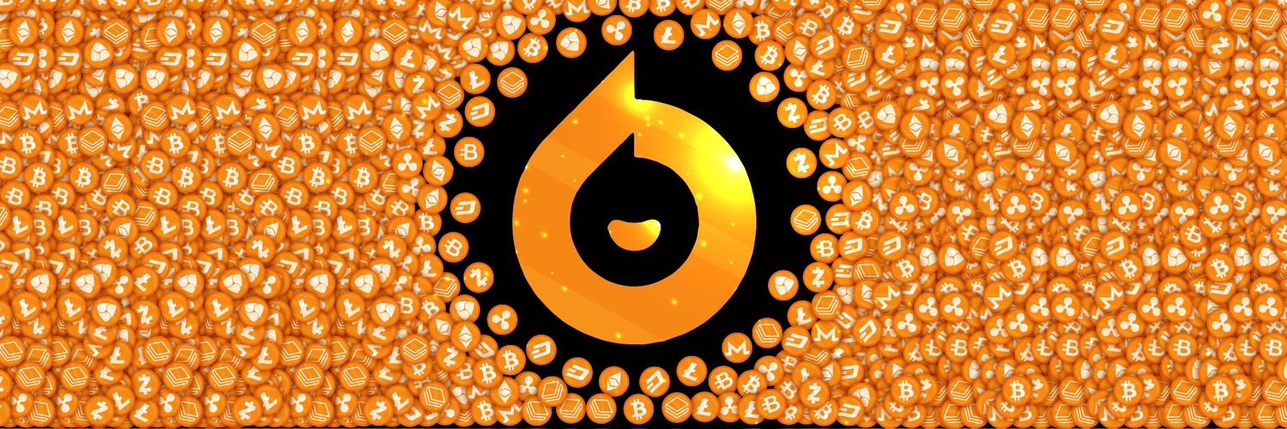

Helium Mobile 價格MOBILE
MOBILE/TWD 匯率換算器
今日Helium Mobile即時價格TWD
您認為今天 Helium Mobile 價格會上漲還是下跌?
Helium Mobile (MOBILE) 簡介
什麼是 Helium Mobile?
Helium Mobile 是 Helium Network 的一部分,而 Helium Network 是一個去中心化的區塊鏈無線基礎設施項目。Helium Mobile 利用了強大、可擴展且安全的 Solana 區塊鏈,旨在實現民主的無線通訊。該網路允許個人和組織部署和運行無線網路,並根據貢獻提供代幣獎勵。Helium 網路使用兩種類型的代幣:主要代幣 HNT 和專為 5G 子網路設計的代幣 MOBILE。MOBILE 代幣具有管理 5G 子網路的重要功能,這些子網路是由 5G 熱點透過數據傳輸活動和稱為覆蓋證明(PoC)的獨特共識演算法所產生。
Helium Network 成立於 2013 年,使命是建立一個以人為本、去中心化的無線基礎設施。自成立以來,它已經取得了大幅發展,擴大了其全球足跡並吸引了各式各樣的用戶和開發者。該網路向 Solana 區塊鏈的遷移,象徵著一個重要的里程碑,增強了其可擴展性和安全性,這對於處理不斷增長的網路參與者和交易數量來說至關重要。Helium Mobile 作為該網路的一部分,處於提供高速行動連線的最前線,支援各種創新應用和服務。
相關頁面
官方文檔: https://docs.helium.com/
官方網站: https://www.helium.com/
Helium Mobile 如何運作?
Helium Mobile 在更廣泛的 Helium Network 中運行,該系統激勵參與者貢獻資源並共享利益,進而建立一個永續的去中心化無線網路。此網路的營運基礎是其獨特的 PoC 共識演算法,獎勵驗證無線網路覆蓋範圍的參與者。這種方法確保了可靠且廣泛的網路,這對於 MOBILE 代幣的高效運作至關重要。5G 熱點產生 MOBILE 代幣的過程,是透過資料傳輸活動和參與覆蓋範圍證明過程兩種方式實現。隨著網路的擴展,它不僅增強了無線通訊能力,還使高速連結的存取變得民主化。
Helium Network 的多元化生態系包括熱點所有者、物聯網裝置用戶、行動裝置用戶和開發者,所有人都為網路做出貢獻,並從中受益。Helium 網路的去中心化基礎設施以 Solana 區塊鏈為基礎,確保可擴展性、安全性和廣泛的應用。從透過 LoRaWAN 網路連結的物聯網裝置,到透過 5G 網路的高速行動連結,Helium Mobile 是這項革命性無線基礎設施的關鍵組成。
什麼是 MOBILE 代幣?
MOBILE 代幣是 Helium 行動網路的一部分,透過社群提案 HIP-53 引入。它透過 5G-CBRS 和 WiFi 熱點挖礦取得,其挖礦過程涉及了數據傳輸收益和參與覆蓋範圍證明。該代幣存在 Solana 區塊鏈上,有一個專門指定給 MOBILE 的鑄造地址。該代幣由 HNT 提供支援,可以轉換為 HNT,而 Helium Wallet 應用程式是這類交易的主要平台。
MOBILE 遵循與 HNT 類似的鑄造時程,但最大供應量為 2,300 億枚代幣。發行時程包括每兩年一次的減半,與 HNT 發行的減半週期一致。MOBILE 代幣會分配給網路內的各種活動,包括覆蓋範圍證明、熱點數據、地圖繪製者、服務提供者和預言機。這種結構化的分配計畫,確保了 Helium 行動網路的平衡和永續成長,有助於實現徹底改變無線通訊領域的目標。
Helium Mobile 的價格是由什麼決定?
Helium Mobile 是 Helium 網路的關鍵組成,其價格受到加密貨幣和區塊鏈市場中常見因素的複雜相互作用影響。其中的一個關鍵是市場的需求和供給,這是一項基本經濟原理,也適用於 Helium Mobile 等數位資產。隨著網路的擴展和更多用戶採用 5G 熱點,對 MOBILE 代幣的需求增加,可能會推高其價格。相反的,供應過剩或需求減少則可能導致價格下跌。此外,由於與 Solana 區塊鏈的整合,網路的性能(如可擴展性、安全性和效率)也發揮關鍵影響。投資者和用戶密切關注這些因素,通常會使用歷史圖表和數據分析來預測未來趨勢。該網路的獨特功能(例如:覆蓋範圍證明及其去中心化性質),進一步增加了其吸引力,影響其市場價值。
決定 Helium Mobile 價格的另一個重要因素是加密貨幣市場的整體情緒。與其他數位資產一樣,MOBILE 代幣也會受到加密市場波動性的影響,而其中新聞、全球事件和監管變化,都可能對價格產生直接且深遠的影響。例如,區塊鏈技術的積極發展,或是有利的監管消息,都可能會導致看漲趨勢,而不利的事件則可能會引發價格回調。此外,Helium 生態系內的合作夥伴關係、網路升級和社群驅動的舉措,也都可能會影響投資者的信心,進而影響代幣的價格。投資者通常依靠價格預測模型和技術分析,包括研究歷史圖表和市場趨勢等,來做出交易 MOBILE 代幣的明智決策。隨著 Helium 網路的不斷發展,並在去中心化無線領域獲得關注,這些因素共同影響了 Helium Mobile 的動態定價。
對投資或交易 Helium Mobile 感興趣的人可能會好奇:在哪裡可以購買 MOBILE?您可以在像是 Bitget 等領先交易所購買 MOBILE,Bitget 為加密貨幣愛好者提供了一個安全且用戶友善的平台。
Helium Mobile 的 AI 分析報告
Helium Mobile價格歷史(TWD)
 最低價
最低價 最高價
最高價 
Helium Mobile的最高價格是多少?
Helium Mobile的最低價格是多少?
Helium Mobile價格預測
什麼時候是購買 MOBILE 的好時機? 我現在應該買入還是賣出 MOBILE?
MOBILE 在 2026 的價格是多少?
MOBILE 在 2031 的價格是多少?
熱門活動
常見問題
Helium Mobile 的目前價格是多少?
Helium Mobile 的 24 小時交易量是多少?
Helium Mobile 的歷史最高價是多少?
我可以在 Bitget 上購買 Helium Mobile 嗎?
我可以透過投資 Helium Mobile 獲得穩定的收入嗎?
我在哪裡能以最低的費用購買 Helium Mobile?
Helium Mobile 資訊
Helium Mobile持幣分布集中度
Helium Mobile地址持有時長分布

全球Helium Mobile價格
- 1
- 2
- 3
- 4
- 5
相關加密貨幣價格
Bitget 平台新上架幣種的價格
如何購買Helium Mobile(MOBILE)

建立您的免費 Bitget 帳戶

認證您的帳戶

將 MOBILE 兌換為 TWD
購買其他幣種
您可以在哪裡購買Helium Mobile(MOBILE)?
影片部分 - 快速認證、快速交易

MOBILE/TWD 匯率換算器
Helium Mobile評級
Bitget 觀點





關於Helium Mobile的更多資訊
交易
理財
MOBILE/USDT
現貨








Helium Mobile社群媒體數據
過去 24 小時,Helium Mobile社群媒體情緒分數是 3,社群媒體上對Helium Mobile價格走勢偏向 看漲。Helium Mobile社群媒體得分是 0,在所有加密貨幣中排名第 579。
根據 LunarCrush 統計,過去 24 小時,社群媒體共提及加密貨幣 1,058,120 次,其中Helium Mobile被提及次數佔比 0.01%,在所有加密貨幣中排名第 420。
過去 24 小時,共有 296 個獨立用戶談論了Helium Mobile,總共提及Helium Mobile 69 次,然而,與前一天相比,獨立用戶數 增加 了 5%,總提及次數增加。
Twitter 上,過去 24 小時共有 0 篇推文提及Helium Mobile,其中 0% 看漲Helium Mobile,0% 篇推文看跌Helium Mobile,而 100% 則對Helium Mobile保持中立。
在 Reddit 上,最近 24 小時共有 24 篇貼文提到了Helium Mobile,相比之前 24 小時總提及次數 減少 了 0%。
社群媒體資訊概況
3